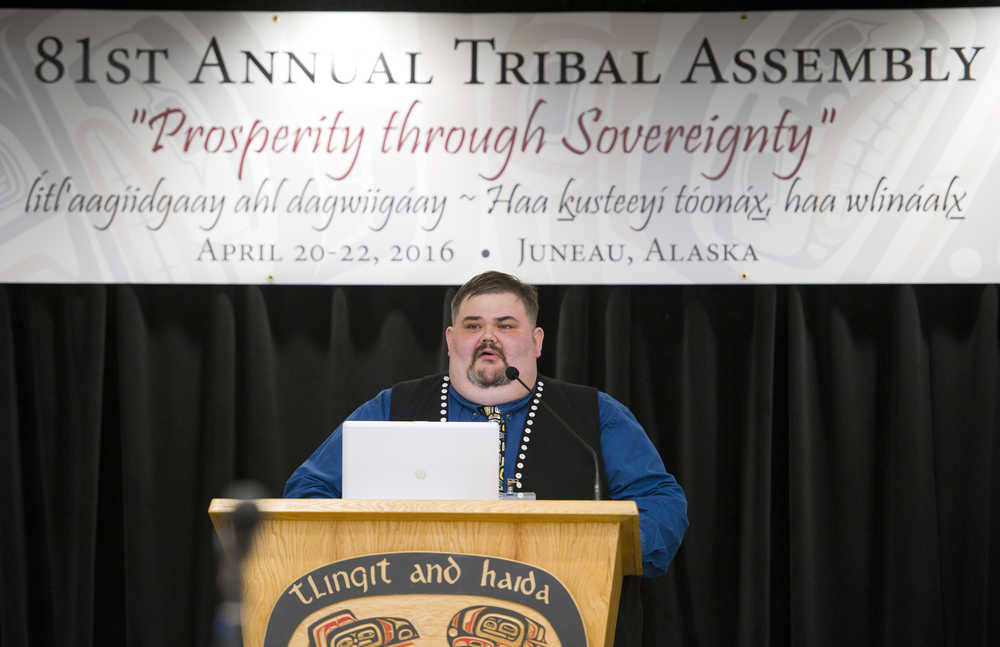Our sovereignty is more than a value, it’s an inherent right that has existed for thousands of years. It is at the core of everything that is at stake in this election: our culture, our knowledge and our self-determination will allow our people to thrive.
For years, the State of Alaska held the position that, legally, Tribes do not exist. Even when courts intervened to correct that position, the state continued treating tribes as opponents. Up through the Parnell administration, the state’s default mode of interacting with tribes was litigation.
The Walker-Mallott administration ushered in a new era of tribal-state relations. We can unequivocally say that the Walker-Mallott administration has done more to recognize and reaffirm the sovereignty of Tribes than any previous administration.
While one candidate for governor proposes stripping rural communities of their children and sending them to boarding schools, the Walker-Mallott administration has empowered tribes to care for our children. A year ago, they signed the historic Child Welfare Compact, a first-of-its-kind agreement that revolutionizes the relationship between tribes and the state. This compact recognizes the authority of Alaska’s tribes and tribal organizations to provide child welfare services on behalf of the state, and empowers tribes to help families care for and protect children.
Never before in the United States have tribal and state partners come together to cement a partnership to protect Native children. This agreement is the culmination of the nearly two-decades of work by tribal leaders like Francine Eddy Jones and Mary Johnson. Because of this agreement, more Native children will remain with their families and traditional way of life, and they will be healthier and safer.
We are the experts of our children and, by extension, our future. This partnership only begins to repair the trauma the state has historically inflicted by removing Alaska Native children from their families. There is so much more repairing to do — we must not turn back now.
Under the governor’s leadership, the Attorney General affirmed in a legal opinion that the 229 federally recognized tribes in Alaska are sovereign governments. Gov. Bill Walker recognized Indigenous Peoples’ Day, and is the first governor to require that his cabinet and senior staff receive training on Alaska’s indigenous people and cultures. Last month, Walker issued an Administrative Order that recognizes the linguistic emergency facing our native languages, and provides a path forward for increased government to government consultation between the state and tribes.
The administration brought native leaders into the decision-making process by creating the Governor’s Tribal Advisory Council (GTAC). We both serve on the GTAC alongside tribal leaders from across the state and we have seen firsthand the GTAC’s recommendations converted into actions. For example, public safety has been a crisis in our villages long before urban Alaska took notice, and we demanded action. The Walker-Mallott administration responded: they pushed the legislature to invest in more rural law enforcement, update our 911 system, and strengthen the VPSO program. Additionally, several civil diversion agreements have been signed with tribes to allow transfer of state court cases into tribal courts. This reaffirms that tribes have the ability to govern their own people. There is much more to be done before rural law enforcement is at an effective level, and Walker-Mallott are taking us in the right direction.
The cost of living in our rural communities can be double or even quadruple that of Anchorage, and many of our constituents rely on the PFD to meet basic needs. It is because of the importance of the PFD that we support Walker and his vision for a more economically stable Alaska.
We as tribal leaders do not have the luxury to think in four-year increments. Instead, we must plan for the next 10,000 years. Political decisions that enrich us at the expense of our children and our grandchildren hurt us as Native people. Cutting the PFD and reinvesting it in the Permanent Fund was not only one of the bravest political actions we have ever witnessed, it was an investment in our future. Because of Walker, the next generation of Alaskans will receive PFDs just as we have.
This November we must unite, or we risk all of the progress made in the last four years. We call upon all Alaskans that value tribal sovereignty to unite behind Walker-Mallott, for they are the team that has united behind us. The first term was historic, but there’s more work to be done. We’re just getting started.
• Richard Peterson is the President of Central Council of the Tlingit and Haida Indian Tribes of Alaska, and Melissa Borton is the Tribal Administrator of the Native Village of Afognak. My Turns and Letters to the Editor represent the view of the author, not the view of the Juneau Empire.

